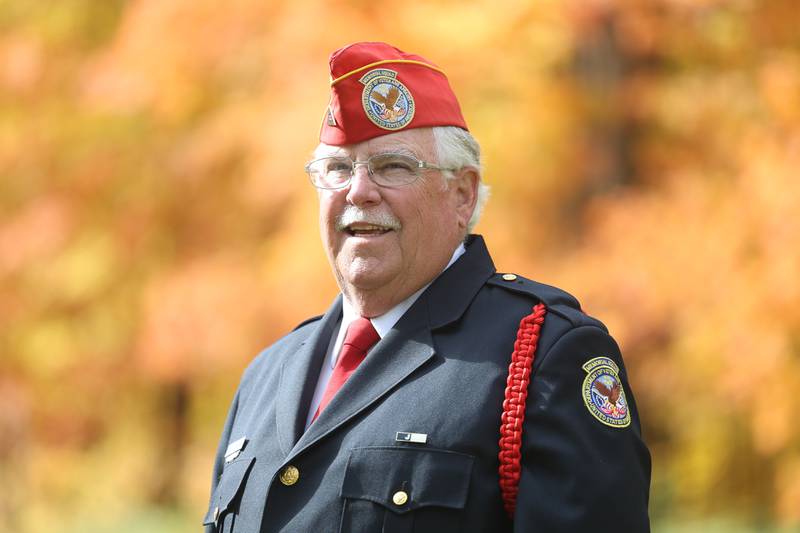Will County — The final thanks that the men and women of the U.S. armed forces can receive for their service to their country is full military honors at their funerals: The playing of taps, a 21-gun salute and the ceremonial folding of the American flag.
For 20 years, this service has been performed at Abraham Lincoln National Cemetery by the Memorial Squad, an all-volunteer group dedicated to giving veterans a proper farewell.
“The group was started in 2003 through the efforts of John Whiteside,” said Fred Siegel, squad commander. “He realized the cemetery didn’t have an organized group to provide the military honors for funerals, and he worked with local politicians to get it organized.”
Whiteside was a longtime reporter and columnist at The Herald-News and was a U.S. Air Force veteran.
For funerals where it’s requested, the Memorial Squad will send one or two buglers to perform taps, as well as a rifle squad. There are about 110 members of the squad, who each volunteer at least one day a week, although Siegel said they’re always looking for more volunteers.
The Memorial Squad performs funeral honors on Mondays, Tuesdays, Thursdays and Fridays, sometimes handling as many as 20 services in a day. There are no burials on weekends, and the Wilmington Veterans of Foreign Wars Post 5422 has a squad that does the honors on Wednesdays.
They also perform a ceremony every quarter for the veterans who are buried directly by the cemetery but have no formal service because they were homeless or had no remaining family. During those services, honors are performed, and the names of the late veterans are read with the ringing of bells, with representatives from local VFW and American Legion posts in attendance.
“We have a different squad for each day of the week, so when we ask for volunteers, we are really only asking for a commitment of one day per week,” Siegel said, adding that some volunteers come out more often.
Siegel said that although many squad members are veterans, some are not. He said the only real requirement is not being afraid to learn how to use a rifle.
New recruits undergo a few weeks of training before they are assigned to a funeral, and they’re provided with a full uniform, so the only commitment requested is time.
For members who do not wish to participate in services, there are opportunities to work in the public information center and help direct funeral parties and visitors entering the cemetery.
The uniforms and equipment are funded exclusively through donations to the squad, some of which are provided by the families of veterans who have died.
“We don’t charge the families, and we never ask them for donations, but some choose to donate, and we appreciate that,” Siegel said.
Of the existing squad members, Siegel said 90% are veterans, although he said others are “just patriotic” or do it because a family member served.
Siegel is a Vietnam-era Air Force veteran, although he never saw active duty. He said the main reason he joined the Memorial Squad was because of his father, who was a decorated pilot in World War II.
“Dad never talked about it, but everybody knew he was a hero,” Siegel said. “He didn’t care. He gave me his medals to play army with when I was a kid. I wanted to honor him. When I heard about the Memorial Squad after he died, I knew I wanted to spend my time doing this.
“I’m honored to be part of this group. It’s pretty humbling, really.”
Other members of the squad include combat veterans who range in age from their 30s to their 80s and one member, bugler Ed Corvie, who started volunteering to help at services a year before the program officially started.
The squad, which sadly lost a few of its oldest members during the COVID-19 pandemic, was limited to how much it could participate in funerals in 2020 and 2021, with only the buglers allowed to perform at the back of the service. The rifle tributes were put on hold by the cemetery to limit attendance and reduce risk to the squad members, although Siegel said their dedication to the cause had many members wishing to continue.
Now that operations have returned to normal, Siegel said, the squad is continuing to grow. It recently enrolled its first physically disabled veteran in the program, and Siegel said the group is looking into opportunities to involve high school-age volunteers.
